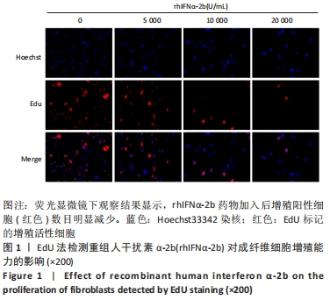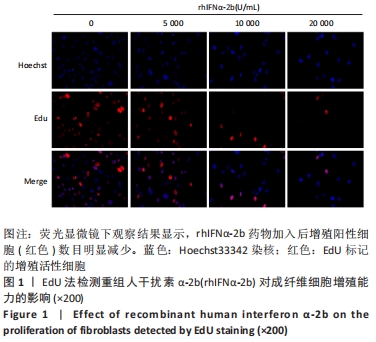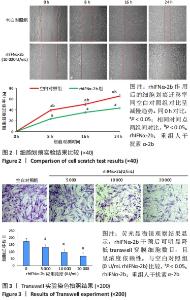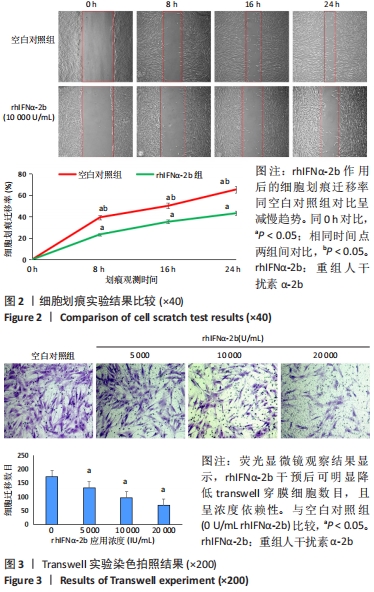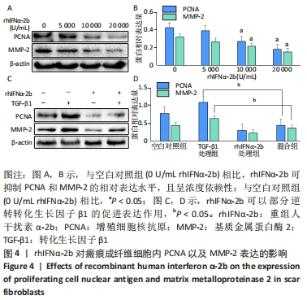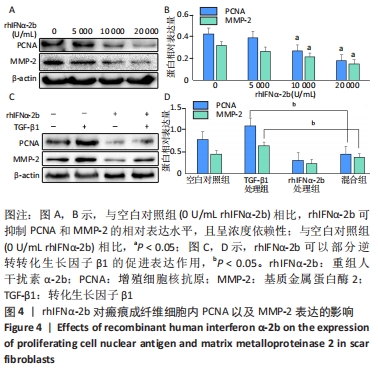[1] YANG SW, GENG ZJ, MA K, et al. Comparison ofthe histological morphology between normal skin and scar tissue. J Huazhong Univ Sci Technolog Med Sci. 2016;36(2):265-269.
[2] FINNERTY CC, JESCHKE MG, BRANSKI LK, et al. Hypertrophic scarring: the greatest unmet challenge after burn injury. Lancet. 2016;388 (10052):1427-1436.
[3] KIM JY, WILLARD JJ, SUPP DM, et al. Burn Scar Biomechanics after Pressure Garment Therapy. Plast Reconstr Surg. 2015;136(3):572-558.
[4] KAFKA M,COLLINS V,KAMOLZ LP, et al. Evidence of invasive and noninvasive treatment modalities for hypertrophic scars: A systematic review. Wound Repair Regen.2017;25(1):139-144.
[5] LEWCZUK N, ZDEBIK A, BOGUSŁAWSKA J. Interferon Alpha 2a and 2b in Ophthalmology: A Review. J Interferon Cytokine Res. 2019;39(5):259-272.
[6] BERMAN B, DUNCAN MR. Short-term keloid treatment in vivo with human interferon alfa-2b results in a selective and persistent normalization of keloidal fibroblast collagen, glycosaminoglycan, and collagenase production in vitro. J Am Acad Dermatol. 1989;21:694-702.
[7] GONG YF, ZHANG XM, LIU F, et al. Inhibitory effect of recombinant human endostatin on the proliferation of hypertrophic scar fibroblasts in a rabbit ear model. Eur J Pharmacol. 2016;791:647-654.
[8] YIN MY, LI H, ZHANG YN, et al. Interferon Alpha-2b eye drops prevent recurrence of pterygium after the bare sclera technique: a single-center, sequential, and controlled study. Cornea. 2019;38(10):1239-1244.
[9] CORNELISSEN AM, VONDEN HOFF IW, MALTHA JC, et al. Effects of interferons on proliferation and collagen synthesis of rat palatal wound fibroblasts. Arch Oral Biol. 1999;44(7):541-547.
[10] 黄勇,邢新,李军辉,等.干扰素α-2b对瘢痕疙瘩成纤维细胞增殖及端粒酶活性的影响[J]. 第二军医大学学报,2006,27(12):1384-1386.
[11] 孔亚男,陆宏,陈颖,等. 青光眼滤过术后瘢痕形成机制及抗瘢痕化研究进展[J]. 国际眼科杂志,2019,19(10):1688-1691.
[12] JIN Q, GUI L, NIU F, et al. Macrophages in keloid are potent at promoting the differentiation and function of regulatory T cells. Exp Cell Res. 2018; 362(2):472-476.
[13] VERMA SK, GARIKIPATI VNS, KRISHNAMURTHY P, et al. Interleukin-10 inhibits bone marrow fibroblast progenitor cell-mediated cardiac fibrosis in pressure-overloaded myocardium. Circulation. 2017;136(10): 940-953.
[14] OGAWA R. Keloid and hypertrophic scars are the result of chronic inflammation in the reticular dermis. Int J Mol Sci. 2017;18(3):E606.
[15] GONG YF, ZHANG XM, LIU F, et al. Inhibitory effect of recombinant human endostatin on the proliferation of hypertrophic scar fibroblasts in a rabbit ear model. Eur J Pharmacol. 2016;791:647-654.
[16] YAN L, WANG LZ, XIAO R, et al. Inhibition of microRNA-21-5p reduces keloid fibroblast autophagy and migration by targeting PTEN after electron beam irradiation. Lab Invest. 2020;100(3):387-399.
[17] LUO L, LI J, LIU H, et al. Adiponectin Is Involved in Connective Tissue Growth Factor-Induced Proliferation, Migration and Overproduction of the Extracellular Matrix in Keloid Fibroblasts. Int J Mol Sci. 2017;18(5):1044.
[18] WITT E, MALIRI A, MCGROUTHER DA, et al. RAC activity in keloid disease: comparative analysis of fibroblasts from margin of keloid to its surrounding normal skin. Eplasty. 2008;8:e19.
[19] BANDURSKA K, KRÓL I, MYGA-NOWAK M. Interferons: between structure and function]. Postepy Hig Med Dosw (Online). 2014;68:428-440.
[20] ASMANA NR. Human Interferon Alpha-2b: A Therapeutic Protein for Cancer Treatment. Scientifica. 2014:970315.
[21] HU JH, CHANG ML, HUANG TJ, et al. Comparison of Compliance and Efficacy of Pegylated Interferon α-2a and α-2b in Adults with Chronic Hepatitis C. J Interferon Cytokine Res. 2019;39(4):205-213.
[22] NINGRUM RA. Human interferon alpha-2b: a therapeutic protein for cancer treatment. Scientifica (Cairo). 2014;970315:1-8.
[23] KATLA S, YOGANAND KNR, HINGANE S, et al. Novel glycosylated human interferon alpha 2b expressed in glycoengineered Pichia pastoris and its biological activity: N-linked glycoengineering approach. Enzyme Microb Technol. 2019;128:49-58.
[24] 刘振东,王瑞,李小磊,王静成. 干扰素α-2b 抑制瘢痕形成的研究与热点[J]. 中国组织工程研究,2021,25(2):159-163.
[25] TSAI WC, CHENG JW, CHEN JL, et al. Low-level laser irradiation stimulates tenocyte proliferation in association with increased NO synthesis and upregulation of PCNA and cyclins. Lasers Med Sci. 2014; 29(4):1377-1384.
[26] ORGAZ JL, PANDYA P, DALMEIDA R, et al. Diverse matrix metalloproteinase functions regulate cancer amoeboid migration. Nat Commun. 2014;5: 4255.
[27] CHO YR, KIM JH, KIM JK, et al. Broussonetia kazinoki modulates the expression of VEGFR-2 and MMP-2 through the inhibition of ERK, Akt and p70S6Kdependent signaling pathways: Its implication in endothelial cell proliferation, migration and tubular formation. Oncol Rep. 2014; 32(4):1531-1536.
[28] YIJING L, LIU H, YUAN C, et al. The effects of qindan-capsule-containing serum on the TGF-β1/ERK signaling pathway, matrix metalloproteinase synthesis and cell function in adventitial fibroblasts. Pharm Biol. 2013; 51(6):712-721.
[29] HAM SA, LEE H, HWANG JS, et al. Activation of peroxisome proliferator-activated receptor δ inhibits angiotensin II-induced activation of matrix metalloproteinase-2 in vascular smooth muscle cells. J Vasc Res. 2014; 51(3):221-230.
[30] FAN X, WANG E, WANG X, et al. MicroRNA-21 is a unique signature associated with coronary plaque instability in humans by regulating matrix metalloproteinase-9 via reversion-inducing cysteine-rich protein with Kazal motifs. Exp Mol Pathol. 2014;96(2):242-249.
[31] 徐志山,回蔷,李伟,等. miR-194-3p对瘢痕疙瘩成纤维细胞迁移的作用[J]. 中华整形外科杂志,2018,34(11):964-970.
[32] LICHTMAN MK, OTERO-VINAS M, FALANGA V. Transforming growth factor beta (TGF-β) isoforms in wound healing and fibrosis. Wound Repair Regen. 2016;24(2):215-222.
[33] Berman B, Maderal A, Raphael B. Keloids and Hypertrophic Scars: Pathophysiology, Classification, and Treatment. Dermatol Surg. 2017;43: S3-S18.
[34] LODYGA M, HINZ B. TGF-β1 - A truly transforming growth factor in fibrosis and immunity. Semin Cell Dev Biol. 2020;101:123-139.
|
